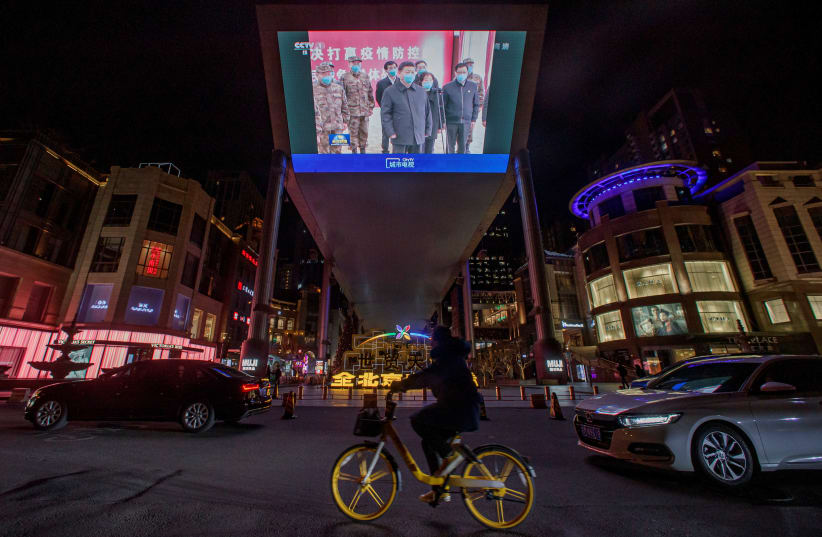The city of Wuhan, at the center of the outbreak, reported no new cases for a sixth day, as businesses reopened and residents set about reclaiming a more normal life after a lockdown for almost two months.
Smartly turned out staff waited in masks and gloves to greet customers at entrances to the newly-reopened Wuhan International Plaza, home to boutiques of luxury brands such as Cartier and Louis Vuitton.
"The Wuhan International Plaza is very representative (of the city)," said Zhang Yu, 29. "So its reopening really makes me feel this city is coming back to life."
Sunday's figure of 31 new cases, including one locally transmitted infection, was down from 45 the previous day, the National Health Commission said.
As infections fall, policymakers are scrambling to revitalize an economy nearly paralyzed by months-long curbs to control the spread of the flu-like disease.
On Monday, the central bank unexpectedly cut the interest rate on reverse repurchase agreements by 20 basis points, the largest in nearly five years.
The government is pushing businesses and factories to reopen, as it rolls out fiscal and monetary stimulus to spur recovery from what is feared to be an outright economic contraction in the quarter to March.
China's exports and imports could worsen as the pandemic spreads, depressing demand both at home and abroad, Xin Guobin, the vice minister of industry and information technology, said on Monday.
China has extended loans of 200 billion yuan ($28 billion) of loans to 5,000 businesses, from 300 billion allocated for loans to help companies as they resume work, Xin said.
VIRUS CONCERNS
While new infections have fallen sharply from February's peak, authorities worry about a second wave triggered by returning Chinese, many of them students.
China cut international flights massively from Sunday for an indefinite period, after it began denying entry to almost all foreigners a day earlier.
The return to work has also prompted concern about potential domestic infections as regional travel curbs ease, especially over carriers who exhibit no, or very mild, symptoms of the highly contagious virus.
Northwestern Gansu province reported a new case of a traveler from the central province of Hubei, who drove back with a virus-free health code, national health authorities said.
Hubei authorities say 4.6 million people in the province returned to work by Saturday, with 2.8 million of them heading for other parts of China.
Most of the departing migrant workers went to the southern provinces of Guangdong and Fujian, the eastern provinces of Zhejiang and Jiangsu, and northeast China.
In Hubei's capital of Wuhan, more retail complexes and shopping streets reopened.
At Wuhan International Plaza, shoppers queued 1-1/2 meters (5 ft) apart for temperature checks, while flashing "green" mobile telephone codes attesting to a clean bill of health.
Wuhan residents have been asked to take nucleic acid tests twice as they seek approvals to resume work.
"Being able to be healthy and leave the house, and meet other colleagues who are also healthy is a very happy thing," said Wang Xueman, a cosmetics sales representative.
"It might seem very ordinary, but after enduring the epidemic, being at peace is a blessing."